
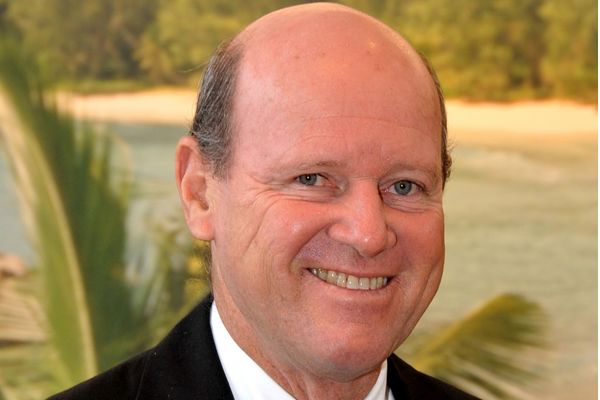
Alain St. Ange appointed as Deputy Secretary General
The former minister of tourism for the Seychelles Alain St. Ange was one of the candidates for Secretary General of the UNWTO until his name was withdrawn by the Seychelles Government.
After all Mr. St. Ange was now appointed Deputy Secretary General of ‘Forum of Small Medium Economic AFRICA ASEAN’ (FORSEAA). FORSEAA is an intergovernmental forum founded by Seychelles and Indonesia with members from Africa and ASEAN countries, with its permanent secretariat in Jakarta, Indonesia.
FORSEAA will assist the SME of AFRICA and ASEAN to attain a new economy, by introduction of new markets, new partners, new technology, new innovation, new design and new approach of delivering the businesses directly to the consumer or in cooperation with FORSEAA affiliation partners.
FORSEAA will play an exciting role in harnessing the SME of AFRICA and ASEAN to wide range market from various parts of the world and to build alliances outside the region by expanding the market, enhancing design and branding, improving competitiveness, access to capital and advocacy of sovereign policy.
FORSEAA offers a one door networking of government, academic, business, finance, design, research and community all integrated thru an interactive database which become the power of social economy to create new market and its requirements.
One of the FORSEAA programs is to achieve small medium enterprises (SME) in Culture & Tourism by playing an active role in encouraging the host community to develop a compassionate destination based on the diversity of cultures within Indonesia. Specifically for small islands’ eco-tourism, FORSEAA will accelerate the cooperation between Africa and ASEAN countries, especially Seychelles and Indonesia, by pairing the brand image of Seychelles in the eco-marine tourism. I am working to see how we can assist the many small pristine islands in Indonesia to contribute economically to Seychelles.
St.Ange explained: “Specifically for small islands’ eco-tourism, FORSEAA will accelerate the cooperation between Africa and ASEAN countries, especially Seychelles and Indonesia, by pairing the brand image of Seychelles in the eco-marine tourism. I am working to see how we can assist the many small pristine islands in Indonesia to contribute economically to Seychelles.”

Ambassador Javier Paulinich takes office as new Permanent Secretary of SELA
Caracas, 01 August 2017.- Ambassador Javier Paulinich takes office today as new Permanent Secretary of the Latin American and Caribbean Economic System (SELA), an intergovernmental organization that brings together 27 countries in the region, for the period 2017-2021.
Ambassador Paulinich will take over as the highest-ranking authority of SELA, with the purpose of strengthening the positioning of the body in the region and guiding its work according to the current needs of its Member States.
The new Permanent Secretary of this organization was elected at the XII Special Meeting of the Latin American Council of the Latin American and Caribbean Economic System (SELA), held on 13 June 2017 in Caracas.

WTTC appointment: Gloria deserves to be where she is placed now
Gloria Guevara Manzo was appointed yesterday as the new CEO and president of the World Travel and Tourism Council (WTTC) (click to read)
This move was welcomed news for many leaders in the Travel and Tourism Industry. Dr. Walter Mzembi, Minister of Tourism and Hospitality told World Tourism Wire: “Gloria deserves to be where she is placed now. No doubt she will take WTTC to new and greater heights.
She is inheriting a solid and respected organization and David Scowsill too takes the credit in this instance together with the experienced team that has worked with him over the years. It has been a pleasure and privilege associating with the progressive agenda and vision of the WTTC to date. We commit to unreservedly supporting Gloria in her new role.”
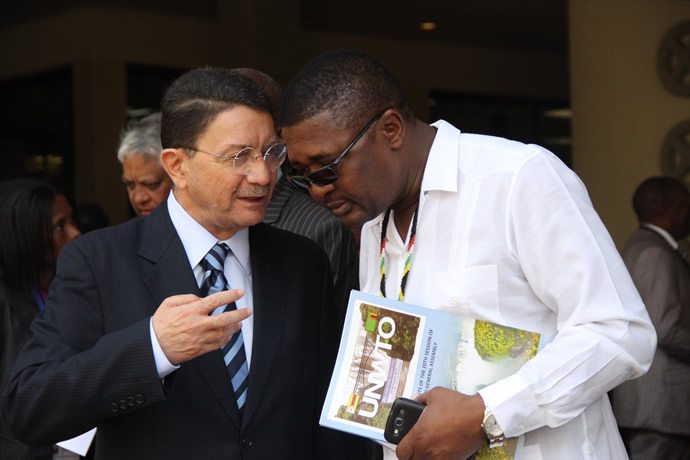
General Assembly: UNWTO responded to Mzembi
UNWTO responded to Zimbabwe’s request to add an agenda point to the in September upcoming UNWTO General Assembly debate in Chengdu, China.
The minister did not release a copy of the response but told WorldTourismWire the issue was with his legal team. He added: “I am sure we will prevail.”
The next UNWTO General Assembly is set for September to be held in Chengdu, China. The Minister for Tourism and Hospitality from Zimbabwe, Dr .Walter Mzembi had requested an agenda point added to the agenda to discuss the May 12 recommendation by the UNWTO Executive Council for the new Secretary General. The minister broke the silence about his concern on June 13 (click here) .

Tourism Development and Conservation: Challenges and Opportunities
The Zimbabwe Minister of Tourism & Hospitality Industry, Hon. Dr. Walter Mzembi spoke on the occasion of the Parliamentary Conservation Caucus Launch on “Tourism Development and Conservation: Challenges and Opportunities on July 19 at the Meikles Hotel, Harare:
Transcript:
Tourism worldwide is in the export category. It ranks third, behind only fuel and chemicals, and ahead of food products and automotive industry. In many developing countries such as Rwanda, tourism is the top export sector. It contributes 10% to Global GDP, generates 1.5 trillion USD in export earnings, employs 1 in every 11 globally, accounts for 30% of total exports in services and it is 7% in quantum for all global trade. The sector has experienced exponential growth from 25 Million international arrivals in 1950 to 1.2 Billion international arrivals in 2016.
Africa experienced a tremendous growth of 8.1% from 53.8 million in 2015 to 58.2 million in 2016. Global growth has been sustained since 2009. However Africa’s market share has remained very small at an average 3-5% in the past decade.
Going forward to 2030 aligned to the SDGs timelines, the sector is signposting 1.8 Billion. However, we are likely to revise these figures on the back of fast growth of the Chinese outbound tourism market. The Chinese Premier last year cautioned us to prepare to receive 600 million Chinese tourists by 2020 from the initial projected growth of 280 million. China is the current bulwark of outbound tourism with its ever growing middle class of over 300 million. What it means is that Africa should prepare itself to receive the world.
Coming closer home, in the year 2016, Zimbabwe received a total of 2 167 686 tourist arrivals, 5% up from 2 056 588 received in 2015. Tourism contributes plus or minus 10 percent to GDP, coming second to Mining and Agriculture. It has potential to grow above the current 5% growth rate in arrivals if adequate resources are directed towards its development. Zimbabwe tourism is mainly nature based and therefore its success mainly depends on biodiversity – Flora and Fauna endowments. This calls for sustainable utilisation and management of our biodiversity and nature in general.
In its 2015 Study Report ‘Towards Measuring the Economic Value of Wildlife Watching Tourism in Africa’ by the UNWTO which followed the presentation of our concept note on ‘Tourism and Biodiversity: Zero Tolerance to Poaching in Africa by 2020’, the UNWTO identified nature related activities constituted over 80% of what Africa sells to markets as its major attraction in its product offering. Set against the scourge of biodiversity terrorism which in our parlance we call poaching, countries and the international community have the responsibility of protecting nature. Tourism is the cutting business edge of biodiversity in its marine and terrestrial nature, and without it, we cannot be there.
It is important to note that there has been a seismic shift specifically from consumptive to non – consumptive forms of wildlife tourism which offer visitors the experience of observing wildlife in natural and non – captive habitats. Generally, species of wildlife that can be observed through this form of tourism are the same as those most threatened by poaching and other forms of environmental detriments. We are at a point here in Africa where some countries have run short of particular wildlife species such as elephant and the rhino due to poaching – the reason why we need to move towards more and more enforced conservation, restoration and rejuvenation of our biodiversity. The biggest mischief is in the source markets that provide incentives for illegal dealing in wildlife products, and our concept alluded to above speak to those issues.
Poaching remains the in my view, remain the biggest scar in the conscience of humanity, and threatens tourism development considering that wildlife is the backbone of the tourism industry. We have aptly named it biodiversity terrorism. In 2013 over 100 elephants were killed through cyanide poisoning in Hwange National Park. More animals of different species have been at the mercy of poaching threatening the survival of the tourism industry. This has been fueled by lack of adequate resources and poor coordination among transfrontier countries in fighting poaching. Government ceased with the matter and putting measures to ensure that we provide adequate protection of our wildlife with full support of international cooperating partners. I hasten to say, we are happy that Parliament is active in this area in terms of legislation, advocacy to ensure that environmental crimes are punished severely to curb the rampant poaching.
Forests which are a major component of scenic tourism have been facing major deforestation. The trees are mainly used as a source of energy in areas where there is no electricity. Resettled farmers who do not have the proper equipment and resources for drying their tobacco have become a major threat to the forests as they use wood as a source of energy for drying their tobacco. The trees are also used as a source of timber for construction work and for making furniture. Nyanga is one tourist resort which is fast losing its appeal to tourists due to deforestation. There replacement rate for the trees that are cut down currently stands below zero, meaning no efforts are being made to replace these wild lands. Wild fires are a sight in most provinces during the dry season. This has greatly affected our flora and fauna. Animal habitat have been affected and it has destroyed many forests and grasslands. It is imperative for government to move in quickly through crafting of new legislation that provides stiffer penalties and provide resources for implementation if ever we are going to protect our country from becoming a desert.
Pertinent to the issue of wildlife is human-wildlife conflicts which is not only a problem in Zimbabwe but Africa wide. It occurs in many countries where human and wildlife ecologically intersect in the ecosystem, and they have competing requirements overlaps. These are particularly common near protected areas and nature reserves where adjacent communities suffer crop raiding and predation on their livestock. In many cases, losses go without compensation because in the last two decades, the CAMPFIRE Association has been unable to provide the required compensation due to sanctions that crippled the once highly supported organisation. We are appealing therefore to partners to come on board and ensure that this institution is resources and enabled to execute its mandate and restore its yester – year glory. Wildlife do not know about the political differences we have as people, but they also deserve co-exist with us, thus, anything that hurts this relationship must be addressed, hence my call to those who imposed sanctions on us and our wildlife to rethink about the matter.
In the same perspective, it is important to intensify to develop more sustainable tourism products that links communities with nature. To this end, there is need to develop and implement integrated community conservation projects such as Conservancies across the country.
As a Ministry, we have set ourselves targets to achieve a $5 billion dollar tourism economy backed by 5 million arrivals, contributing to 15% to GDP by 2020 – which we call 5; 5; 15; 2020. This is possible. Tourism is a low hanging fruit, which requires support and robust marketing and promotion of our destination underpinned by our unparalleled biodiversity.
We are also diversifying our products to include culture, heritage and historical tourism and indeed, city tourism as city brands are emerging as key destinations. Within their configurations, there is always a component of nature and this is the reason why we are promoting the concept of city – parks. A visit to Harare without going to Mbizi Game Park and the Lion and Cheater Park or Lake Chivero will not be enough. Going into the future, modelled around our successful land reform programme, we envisage integration of plots and farms to initiate conservation projects as lucrative enterprise. This has already started with some newly resettled farmers in Marondera having begun such projects. We encourage this innovation and creativity, which we want to see growing in Zimbabwe as we pursue conservation farming as a matter of policy objective.
We would want to see more marketing of our products. Destinations that are fast becoming successful tourism economies have invested more in promotion and incentivizing both domestic and international visitors. Tanzania for example in 2014 set aside $5 million budget for marketing alone. In Zimbabwe, the sector received not in excess of 4 million in budgetary allocation for both all operations of both the Ministry and the Zimbabwe Tourism Authority. Being one of the top three revenue earners within Zimasset and one key drivers of economic development, we are regrettably in the bottom 3 on budgetary allocations in the last 5 Years. I hope Parliamentarians will help us to advocate more allocation to the sector.
We have initiated the development of a National Tourism Masterplan which will direct all tourism development in the country, including depicting investable opportunities in Zimbabwe. The document also provides 3 growth scenarios which are Low, Medium and High Growth Areas in tourism. Government through its Special Purpose Investment arm, the Mosi Oa Tunya Development Company Private Limited, is ready to tango with investors in the establishments of various tourism assets and products. There is so much potential in Zimbabwe, including partnerships in wildlife conservation projects that we can do between us and the Department of Parks and Wildlife Management in the Ministry of Environment, Water and Climate – the custodians of our biodiversity.
In concluding my remarks to this important gathering, let me once again state clearly that in less than ten years, 150 thousand elephants have been lost to poaching. More than two rhinos are killed every day – a true story of the Tragedy of the Commons, and our Common Future may not exciting without these beautiful animals living side by side with us. Whether it is on the land or in the sea, few creatures are safe from harm, and behind all this bleak outlook, there are stories of human tragedy, too. The rangers are killed whilst protecting animals targeted by poachers. The villages are torn apart by poaching – we certainly have to do something as a collective. The international community that didn’t do enough here in Zimbabwe to capacitate us, should come not to the table and assist us to stop wildlife carnage. We are committed as government and let us build a powerful coalition of committed partners, who together, are greater than the sum total of those seeking to reverse the gains of conservation for tourism to thrive.
I thank you.
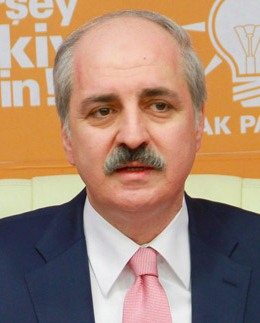
Turkey has a new tourism minister after parliament reshuffle
The Hon. Numan Kurtulmuş is now the new minister of tourism in Turkey. Tourism is one of the most important foreign exchange earners in Turkey. Turkish controversial president Erdogan decided to fire the previous minister Prof. Dr. Nabi Avci and do a more sympathetic replacement.
This was reported by the Turkish newspaper Hürriyet today.
Kurtulmus thanked Avci for his services and pledged to continue important task for the better of the travel and tourism development in Turkey. He left details open.
Kurtulmuş was born in Ünye district of Ordu Province. His grandfather was a major in the Turkish army who fought in the Turkish War of Independence. He is of Georgian descent by his grandmother. Kurtulmuş is married, and is a father of three children. His wife Sevgi Kurtulmuş is an academician. He is fluent in English and his favorite football team is Fenerbahçe.
Kurtulmus received his bachelor’s and master’s degree at Istanbul University’s School of Business Administration. He had been at Cornell University as a visiting researcher, during his dissertation work at Istanbul University. Kurtulmus obtained his PhD in economics in 1992. He became Associate Professor in 1994 at Istanbul University, Faculty of Economics.
In 1998, Kurtulmuş became Istanbul provincial head of the Virtue Party (FP) and a member of the party’s General Administrative Board. Later he served as Istanbul Provincial head of Virtue Party and deputy chair.
Kurtulmuş was elected to the chair of the Felicity Party (SP) at the Third Ordinary Congress of the Party on 26 October 2008. After a rift developed with the followers of former FP leader and former Prime Minister Necmettin Erbakan, signatures of a majority of the delegates asked for renewal of the congress and the sacking of Kurtulmuş. Refusing this, the matter ended up in court, and the court ruled that party administration should be transferred from his leadership to a board of trustees. After the ruling he had to resign from his position on 1 October 2010.
On November 1, 2010, Kurtulmuş founded a new party, the People’s Voice Party (Halkın Sesi Partisi), of which he was elected leader on November 28, 2010. In September 2012, two-year-old conservative-oriented People’s Voice Party(HSP) dissolved itself and joined the ruling Justice and Development Party (AKP) with a majority of its delegates’ votes.
He last served as the Deputy PM.
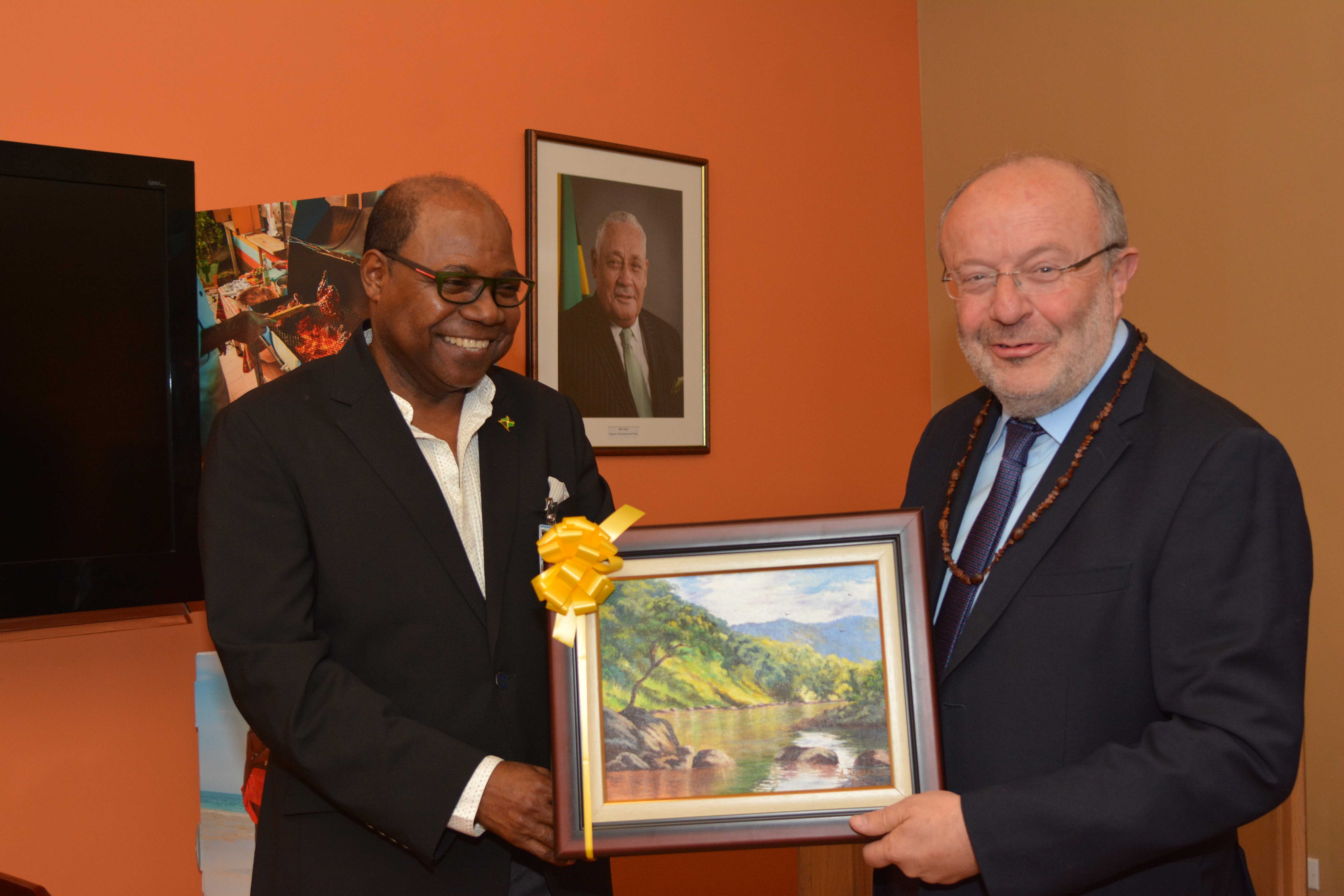
Bartlett Wants More From Tourist Dollar
MONTEGO BAY, Jamaica, Tuesday, July 11, 2017: With investment in room stock surging ahead of set targets, Minister of Tourism Hon Edmund Bartlett is turning attention to finding ways of retaining more of the tourist dollar in Jamaica.’
“What we want now is capacity building. We want investment in supplying the inputs of tourism; more agriculture, more manufacturing and more experiences with investment in entertainment, in the arts, gastronomy and culture,” said Minister Bartlett Sunday (July 9) at a press briefing at Sangster International Airport to welcome Evelop Airlines out of Madrid, Spain. “That’s the kind of investment I’m looking for from now on because we have enough takers for the 20,000 additional rooms that we want,” he added.
He was speaking against the background of Evelop adding some 8,000 seats to airlift out of Madrid to Montego Bay for the summer. A special guest on board Sunday’s flight with 328 passengers and crew was Spain’s Secretary of State for International Cooperation for Latin America and the Caribbean, Mr. Fernando García Casas, who was welcomed by a party of officials headed by Minister Bartlett and including Spanish Ambassador to Jamaica, His Excellency Josep Maria Bosch.
Spanish investment now accounts for some 10,000 hotel rooms and counting. Also, by the last quarter of this year, ground should be broken in Duncans, Trelawny, for a 750-room development by H10 Hotels out of Barcelona. About that time too, ground will be broken for 100 rooms at Rose Hall, Montego Bay. Minister Bartlett said this was in addition to the 750 rooms being built in Falmouth by Excellence Resorts.
He stressed, however, “We don’t want to be just building more and more rooms. We want to be building the capacity of the people of Jamaica to start to convert that wealth that comes here on the plane and in the ship into dollars in their pockets.”
In looking to Spain for some guidance, Minister Bartlett said he had discussed with the Secretary of State and the Ambassador the fact that tourism was responsible for the fast turnaround of Spain’s economy after the recession; defying the belief by many that because of its tourism-based economy the country would not rebound as the last thing people would do is travel. However, this belief proved to be wrong as travel was stepped up.
Minister Bartlett said this underlined the fact that tourism was not as fragile as it was made out to be but that “it represents a very sound, sustainable way of driving growth in an economy.” With the Spanish economy having bounced back, the tourist traffic had begun to move again “so we are in a position where we can leverage that to bring a direct flight to Jamaica,” said Minister Bartlett.
The Evelop rotation goes up to October but the tourism minister is optimistic that it will set the stage for scheduled flights to come.
Ambassador Bosch said the decision by Secretary of State Fernando Casas to start his visit to Jamaica in Montego Bay “is very important and marks the importance that we give as the Spanish government to tourism and on the Spanish investment in the hotel industry in Jamaica.”
He said while Spain had other interests in Jamaica, tourism was the basis on which a closer relationship would be built between the two countries.
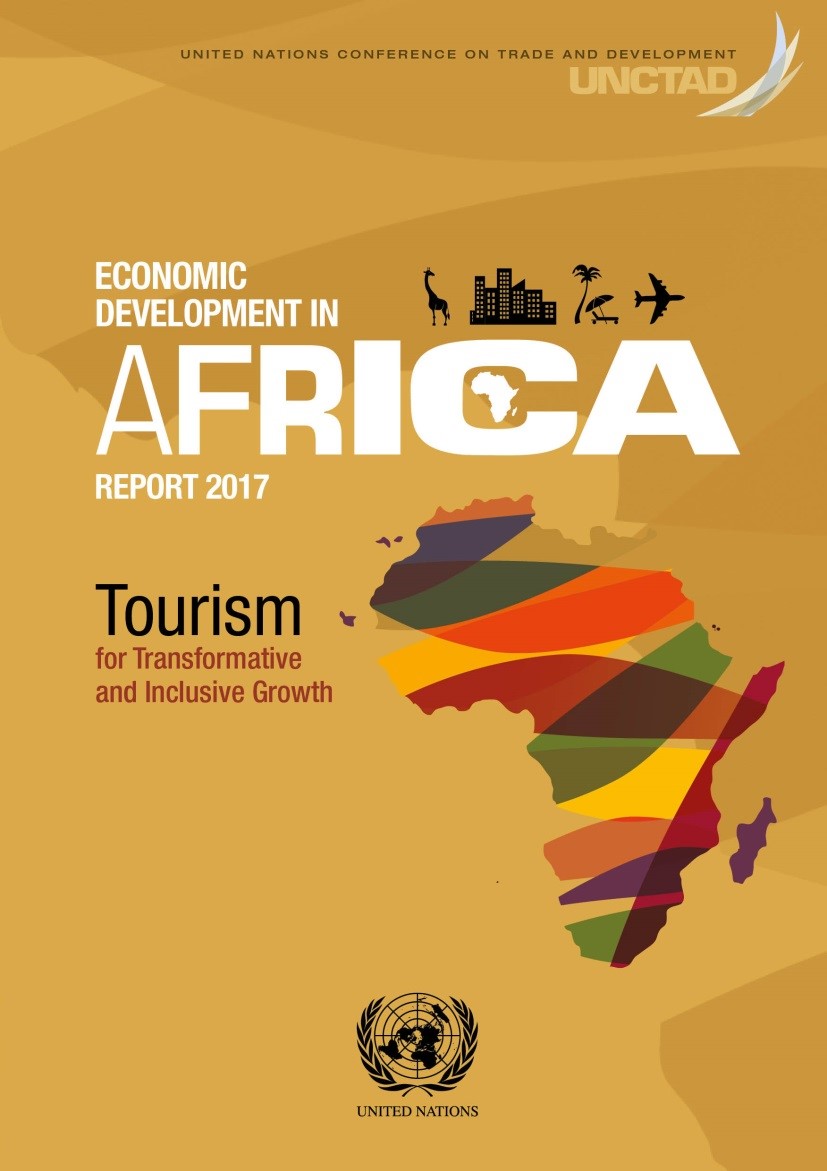
Dr. Walter Mzembi launches UNCTAD Economic Development in Africa Report 2017 on ‘Tourism for Transformative and Inclusive Growth’
06 July 2017, Mikel’s Hotel, Harare, Zimbabwe
The Officer in Charge – United Nations Information Centre, Ms. Tafadzwa Mwale;
The Director of Knowledge and Learning – African Capacity Building Foundation (ACBF), Dr. Thomas Chataghalala Munthali;
Members of Diplomatic Corps;
UN Agencies here represented;
All Dignitaries and Fellow Citizens
Tourism is the engine for not only Transformative Growth and Inclusive Growth in Africa, but the centre – piece for accelerated broad based empowerment of women and youth. The African Union adopted Agenda 2063, and in 2017, the AU adopted the theme: Harnessing the Demographic Dividend – which to me can succeed effectively if Africa exploits the inert potential in tourism.
Tourism worldwide is in the export category. It ranks third, behind only fuel and chemicals, and ahead of food products and automotive industry. In many developing countries such as Rwanda, tourism is the top export sector. It contributes 10% to Global GDP, generates 1.5 trillion USD in export earnings, employs 1 in every 11 globally, it accounts for 30% of total exports in services and it is 7% in quantum for all global trade. The sector has experience exponential growth from 25 Million international arrivals in 1950 to 1.2 Billion international arrivals in 2016.
Going forward to 2030 aligned to the SDGs timelines, the sector is signposting 1.8 Billion. However, we are likely to revise these figures on the back of fast growth of the Chinese outbound tourism market. The Chinese Premier last year cautioned us to prepare to receive 600 million Chinese tourists by 2020 globally from the projected growth of 200 million. China is currently the bulwark of outbound tourism with its ever growing middle class of over 300 million – and if anything, the projected 1.8 Billion international arrivals by 2030 could be an understatement of the reality of this sector’s growth potential. What it means – is Africa should prepare itself to receive the world.
In its wisdom, on the 4th of December 2016, the United Nations declared 2017 the International Year of Sustainable Tourism for Development. Thus, the launch of this report gives me more hope as it resonates with our celebration of 2017 the International Year of Sustainable Tourism for Development. In my campaign for post of Secretary General of the United Nations World Tourism Organisation, the results of which are all known to us, and I am happy to share with you that we missed the opportunity to lead the UNWTO by falling short of a mere two votes to Georgia. In my Statement of Policy Intent and Management – I emphasized in no particular order:
• Relevance of the organisation to its members, especially growing the tourism economy with equity across all regions.
• Reinstituting the Agency’s developmental mandate – and setting up a Global Tourism Fund being top priority to me.
• Universality: – which primarily focused on growing the membership of the organization – and align it to the 193 UN Members as opposed to the current 157 that are members of the UNWTO, and further to that bring on board countries such as the U.S.A, Britain, Australia and Canada that are currently outside the UNWTO, and to grow both Affiliate and Associate Membership, incorporating cities which are now important competitive sub-brands of tourism.
• Create more relevance of the Agency.
• Make UNWTO more inclusive – in dealing with global challenges together with other agencies e. g. dealing with issues related and not limited to Tourism and Security, Redefine insecurities to include natural disasters, Climate Change, Biodiversity terrorism on both terrestrial and marine resources, migration, travel advisories and travel bans, disasters and post disaster management and destination restorations etc.
• Make the UWTO more responsive: – Answer to membership expectations, respond expeditiously and practically to issues besetting the tourism sector. At the same time, motivate members’ active participation in global tourism policy formulation with inclusivity.
• Diplomacy – Use tourism as a tool for diplomacy in keeping with leveraging tourism to build cultural understanding across the globe and strengthen peace and co-existence among people and nations.
• Permanent representation: – meant to enhance the Agency’s international political recognition.
The race for the post will only be over once the UNWTO Secretary General Elect gets the required 2/3 confirmatory votes in September 2017, 22nd Session of the UNWTO General Assembly in Chengdu, the People’s Republic of China.
In the context of SDGs, we were assigned Sustainable Development Goals 8, 12 and 14.
Goal 8: Promote sustained, inclusive and sustainable economic growth, full and productive employment and decent work for all;
Goal 12: Ensure sustainable consumption and production (SCP) patterns; and
Goal 14: Conserve and sustainably use of the oceans, seas and marine resources for sustainable development, while having a multiplier effect on many other Goals.
This new development agenda to 2030 is the most ambitious to date, and embedded in all the 17 SGDs, are clear efforts that consign us to work towards poverty eradication, ensure sustainability, protect the planet, and ensure equality and prosperity for all.
The relationship between tourism and sustainability, inclusive growth with attendant transformative characteristics is underpinned by embracing new technology and innovation, ensuring seamless travel and security, and robust travel facilitation. Africa’s growth of all the glorious statistics I shared with you is a mere 3-5% of the global total of 1.2 Billion arrivals. Thus, the continent is the weakest link and we need to work hard to change the situation.
There is no doubt that tourism is a powerful vehicle for promoting and reaching development milestones, and I am pleased to note that Africa has huge potential if exploited to enhance tourism’s contribution to the economic, environmental and social dimensions of sustainability. Tourism contributes directly to employment creation, and this can be a solution to the problem of our young man and women having to risk their lives crossing the Mediterranean Sea and Island of Lampedusa going to Europe to look for similar jobs that can be created within Africa through investment in tourism, and retain our youth in the continent to contribute to productive work.
Africa has had its fair share of challenges chief among them: Diverse and prohibitive Visa Regimes; Destination Accessibility challenges; Continental Brand Hygienic issues; Insecurities; and Funding for competitive infrastructure development – so critical to connect destinations to markets and capital (connectography) in order to ensure a successful tourism economy.
To achieve sustainability and success of the tourism sector in Africa, we are ceased under the AU Agenda 2063 with the consummation of a continental tourism policy and institutionalisation, dealing with Brand Africa, Liberalisation of the airspace through the implementation of the 1998 Yamoussoukro Declaration. We are also implementing Universal Visa Systems (UNIVISA), building more hotels, airports and resorts in order to improve tourism business and trade in Africa.
At the same time, we are ceased with sustainable management and conservation of both marine and terrestrial natural resources. According to the UNWTO Study on ‘Towards Measuring the Economic Value of Wildlife Watching Tourism in Africa’ nature related activities accounts for over 80% of Africa’s product offering and attraction. Thus, we are conscious of sustainable management of our natural resources to remain relevant and competitive as a continent. More importantly, we are also paying attention to matters related to tourism and security so that we guarantee safety and peace to our visitors. In my view, tourism essentially serves the planet as well as people – thus we are conscious on our sector to alert to climate change issues, mitigation and adaptation of the sector to avoid the risks that can degrade our product offering and competitiveness.
The Report shared to us today by the United Nations Conference on Trade and Development (UNCTAD) regarding Economic Development in Africa 2017 with the primary focus on ‘Tourism for Transformative and Inclusive Growth’, resonates with our various efforts at both national and international levels as we seek to maximise this sector’s potential to sustainable development. The results show great potential – a source of hope to all of us. At the same time, it identifies gaps – which in themselves represent strong cases needing attention from both the public and private sector to work as a collective in addressing these challenges.
Ladies and Gentleman, it is my singular honour and privilege, to declare the UNCTAD Economic Development in Africa Report 2017, Tourism for Transformative and Inclusive Growth launched.

Caribbean Tourism Organization And Caribbean Development Bank to help region’s tourism sector combat impact of climate change
Region’s tourism development agency to launch climate smart programme with €460,000 grant from Caribbean Development Bank.
BRIDGETOWN, Barbados (23 June, 2017) – The Caribbean Tourism Organization (CTO) has received a €460,000 grant from the Caribbean Development Bank (CDB) to implement a project to increase the Caribbean tourism sector’s resilience to natural hazards and climate related risks.
“Global climate change and its impacts, including the increasing frequency and severity of extreme weather events, pose a significant risk to the Caribbean region and threaten the sustainability of Caribbean tourism. The CTO is pleased to have the support of the CDB to implement this project which will contribute to enhancing the resiliency, sustainability and competitiveness of the region’s tourism sector. Mainstreaming climate change adaptation (CCA) and disaster risk management (DRM) strategies in tourism development and planning is our duty to our member countries,” the CTO’s Secretary General Hugh Riley said.
The CDB / CTO partnership was formalized at a signing ceremony held on June 22, 2017 at CDB’s headquarters in Barbados. Speaking at the event, CDB President, Dr. Wm. Warren Smith, noted that the tourism sector makes an enormous contribution to the Region’s socio-economic development.
“Tourism generates high levels of employment, foreign direct investment and foreign exchange for our borrowing member countries and, given its multi-sectoral nature, it is a very effective tool for promoting sustainable development and poverty reduction. However, maintaining this critical role calls for adequate safeguards to be erected against the enormous threats that climate change and natural hazards pose to the sustainability of our Region,” said Dr. Smith.
Funding is being provided under the African Caribbean Pacific-European Union-Caribbean Development Bank- Natural Disaster Risk Management in CARIFORUM Countries programme, which aims to reduce vulnerability to long-term impacts of natural hazards, including the potential impacts of climate change, thereby achieving national and regional sustainable development and poverty reduction goals in those countries.
During the 19-month project implementation period, the CTO will support the region’s tourism entities with policy formulation, the promotion of best practices in disaster risk management and climate change adaptation, and the development of tools to enhance the tourism sector’s knowledge and awareness of disaster risk reduction strategies and the potential impacts of climate variability and climate change (CVC).
A training component will also be included to strengthen the ability of public and private sector tourism stakeholders to undertake adequate mitigation and adaptation actions to CVC. The CTO secretariat will also benefit from institutional strengthening to help provide technical assistance and ongoing support for tourism-related climate services.
The project is in keeping with 2017 as the International Year of Sustainable Tourism for Development, which has been designated by the United Nations General Assembly.
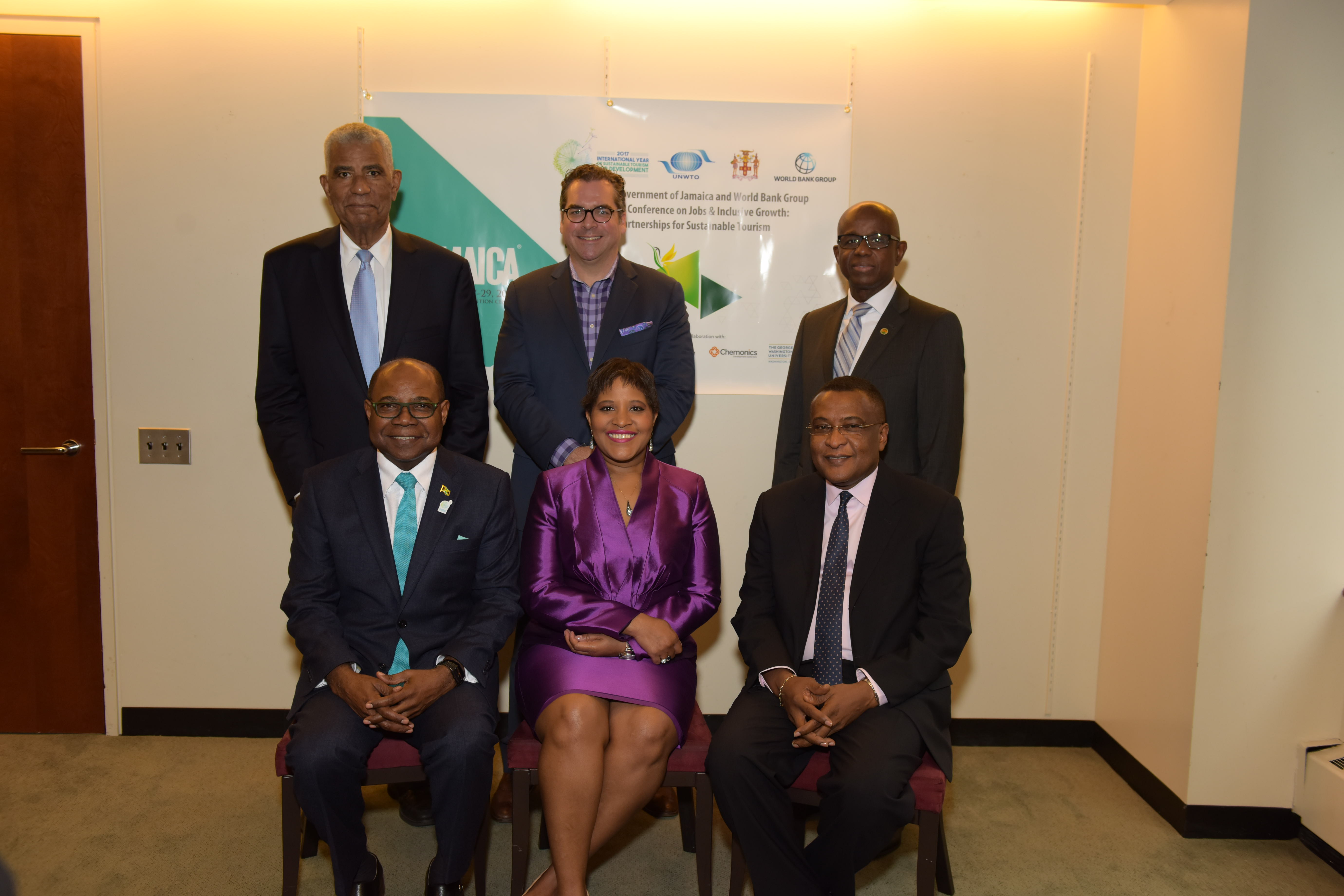
Regional tourism industry set to take centerstage during UNWTO Global Conference in Montego Bay, Jamaica
NEW YORK, NY – June 6, 2017 – The regional tourism industry is set to take centerstage during the UNWTO, Government of Jamaica and World Bank Group Conference on Jobs & Inclusive Growth: Partnerships for Sustainable Tourism, at the Montego Bay Convention Centre, St. James, November 27-29, 2017. Speaking at a press conference on June 6 at the Consulate General of Jamaica during Caribbean Week in New York, Minister of Tourism, the Honourable Edmund Bartlett noted that given the region’s dependency on tourism, it was important that such a conference provide solutions on how the Caribbean can better leverage this industry.
“The conference programme, though global in nature, is highly significant to the Caribbean. And therefore, we felt that we should incorporate a programme specific to the Caribbean and some of the issues we grapple with. This programme will take place on the first day of the conference on November 27,” noted Minister Bartlett.
With the regional focus on opening day, the Ministry of Tourism received the endorsement of the Caribbean Tourism Organization (CTO) from Secretary General Hugh Riley and the Caribbean Hotel and Tourist Association (CHTA) by way of Chief Marketing Officer Matt Cooper.
Minister Bartlett stated that tourism is the single largest generator of foreign exchange in 16 of the 28 countries in the Caribbean and the sector receiving the most foreign direct investment (FDI), adding that the region has a higher proportion of total employment and percentage of GDP derived from tourism than any other region in the world.
According to the Tourism Minister, “It is estimated that 1 in every 4 persons is employed by tourism-related activities and the sector accounts for 41% of all exports and services in the Caribbean and 31% of all gross domestic product”.
Additionally, Minister Bartlett indicated that similar to what was done with the global aspect of the conference, the organizers have included a number of Caribbean themes within the Call for Papers, which cover tourism and sustainability, where the threats, risks and challenges will be discussed; the strengthening of the human capital and human capital trends; the tourism value chain linkages and technology and innovation.
According to Minister Bartlett, one of key expected outcomes from this global conference is the Montego Bay Declaration. “At the end of the conference, there will be the compilation of the Draft Montego Bay Declaration. From this will flow an action plan for tourism destinations to follow, as well as the publication of the second volume of the UNWTO Global Report on Public Private Partnerships”.
The Tourism Minister also announced that the Conference will be used to pay tribute to the current UNWTO Secretary General Dr. Taleb Rifai whose tenure comes to an end. “Although he will have his formal send-off in December, the UNWTO has allowed us to utilize this opportunity for the more emotional and “irie” send-off,” noted Bartlett.
Another feature of the conference will be the presentation of the Caribbean Legends Awards, the first of its kind, which will be a collaborative effort involving the Ministry of Tourism of Jamaica, the CTO and the CHTA, supported by UNWTO. These awards, in the categories of Land, Sea and Air, will be given to individuals that have made an indelible mark on the tourism industry, not just regionally, but globally, enhancing the Caribbean brand.
Minister Bartlett departed the island to attend CTO Caribbean Week on June 5, 2017 and will return on June 11, 2017. He is accompanied by his Senior Communications Strategist, Delano Seiveright.
